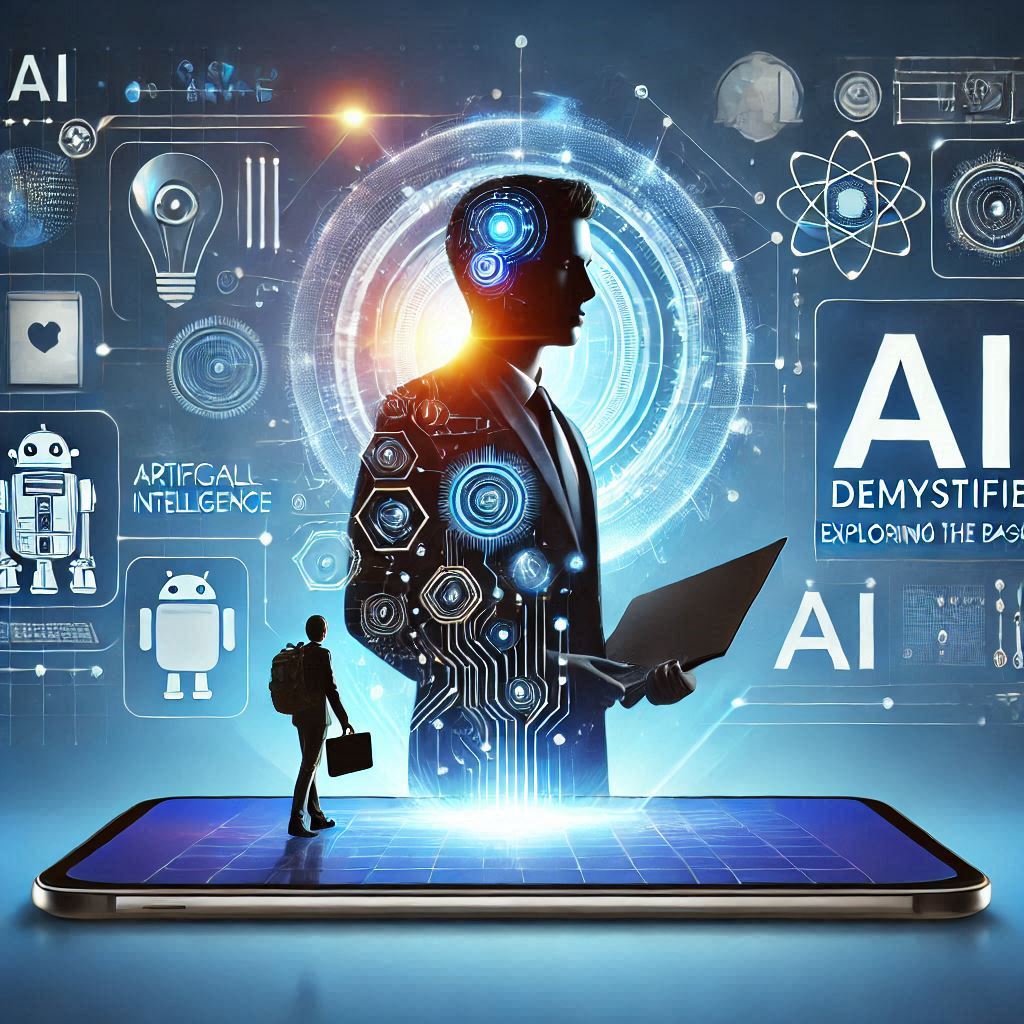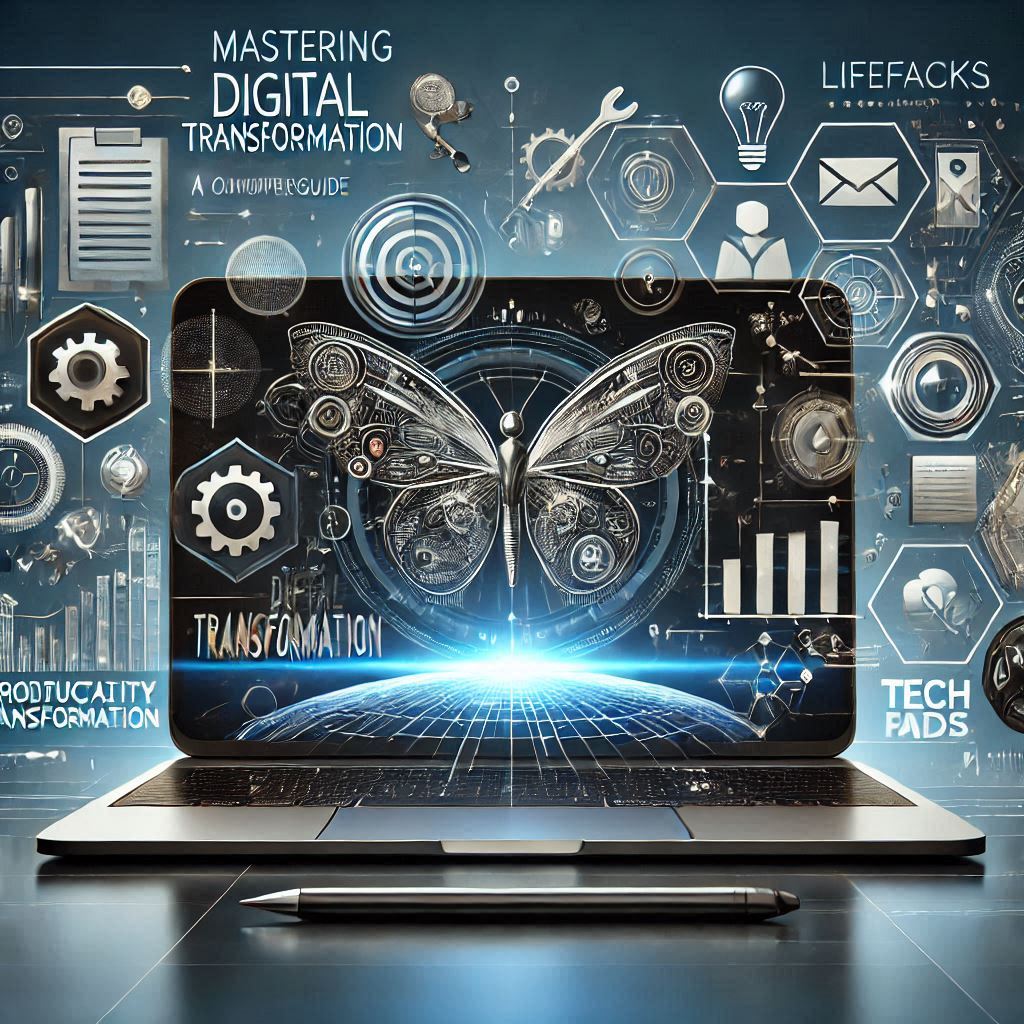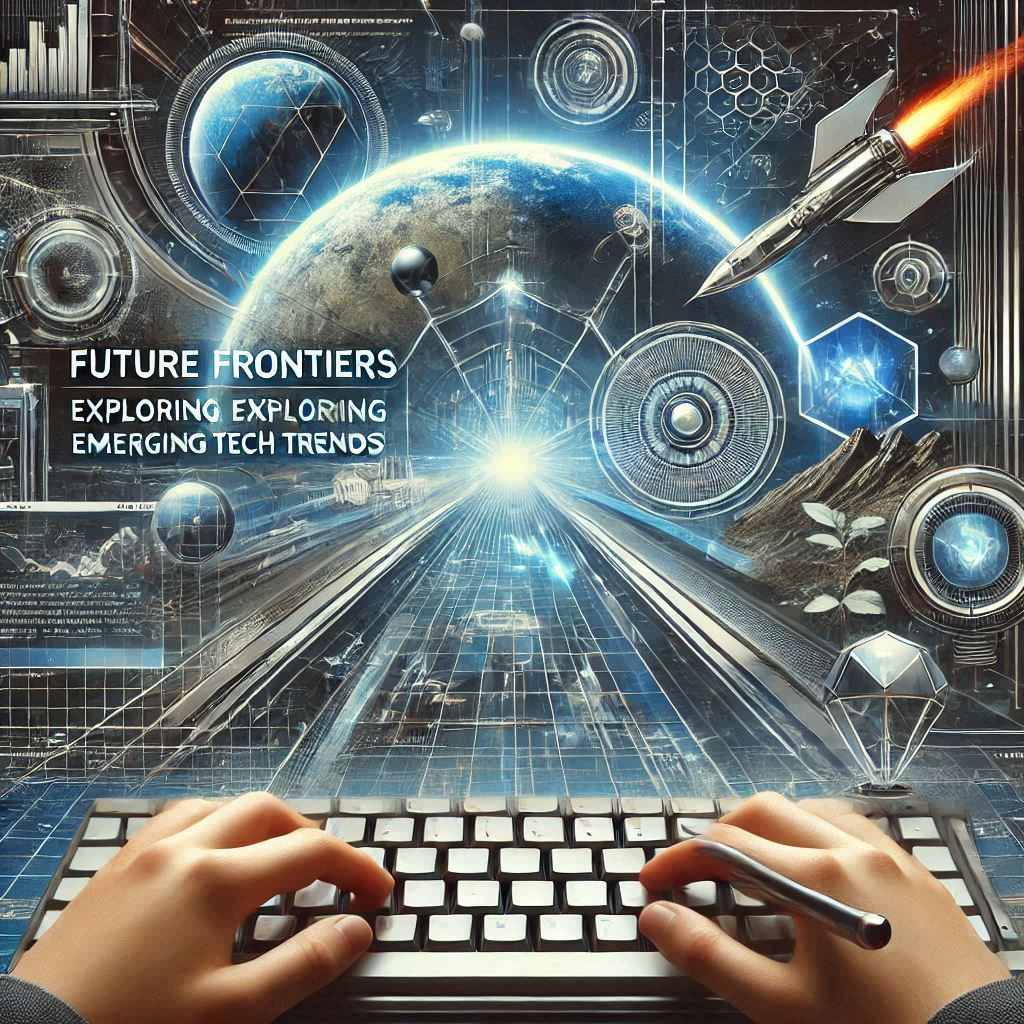As we move further into the 21st century, technology is evolving at an unprecedented pace. Innovations that were once the stuff of science fiction are becoming a reality, reshaping industries, economies, and the way we live our daily lives. From artificial intelligence (AI) and quantum computing to blockchain and biotechnology, emerging technologies are unlocking a future that was once hard to imagine. In this article, we’ll explore some of the most exciting emerging technologies and how they’re poised to shape our world.
1. Artificial Intelligence (AI): Transforming the World Around Us
Artificial intelligence (AI) has already begun to transform industries such as healthcare, finance, transportation, and entertainment. AI systems can analyze massive amounts of data, make predictions, automate repetitive tasks, and improve decision-making processes. As AI continues to evolve, it has the potential to solve some of society’s most pressing challenges, from climate change to personalized medicine.
Why it matters: AI’s ability to mimic human intelligence opens up a world of possibilities for automating complex tasks and improving efficiency. It has the power to change the way we work, solve problems, and create new solutions for the challenges of tomorrow.
Key Applications:
- Healthcare: AI is used to diagnose diseases, personalize treatment plans, and predict patient outcomes more accurately.
- Transportation: Self-driving cars, powered by AI, promise to revolutionize the transportation industry, making roads safer and reducing congestion.
- Customer Service: AI-driven chatbots and virtual assistants are improving customer experiences by providing instant responses and personalized support.
2. Quantum Computing: The Next Frontier in Processing Power
Quantum computing is still in its infancy, but it holds the potential to revolutionize industries that rely on vast computational power. Unlike traditional computers that process data in binary (ones and zeros), quantum computers use qubits, which can represent and store data in multiple states at once. This allows quantum computers to process information at speeds unimaginable with current technology.
Why it matters: Quantum computing could drastically improve fields such as cryptography, material science, and artificial intelligence by solving complex problems that are currently beyond the capabilities of classical computers.
Key Applications:
- Cryptography: Quantum computers could break existing encryption methods, but they also hold the key to developing more secure forms of encryption for the future.
- Drug Discovery: Quantum computing could accelerate the process of discovering new drugs by simulating molecular interactions at a much faster rate than current methods.
- Financial Modeling: Quantum computers can help financial institutions model complex scenarios and make better predictions, improving decision-making in high-stakes environments.
3. Blockchain and Decentralized Finance (DeFi): Redefining Trust and Security
Blockchain technology, most commonly associated with cryptocurrencies like Bitcoin and Ethereum, is gaining traction in many sectors due to its ability to provide secure, transparent, and decentralized record-keeping. With its tamper-resistant ledger system, blockchain is redefining how transactions are conducted, from financial exchanges to supply chain management and beyond.
Why it matters: Blockchain’s decentralized nature ensures that no single entity controls the system, making it more secure and transparent. It’s set to revolutionize how we think about trust and security in digital transactions.
Key Applications:
- Cryptocurrencies: Digital currencies like Bitcoin and Ethereum allow for peer-to-peer transactions without the need for intermediaries, such as banks.
- Supply Chain Management: Blockchain enables real-time tracking of goods and services, improving transparency and reducing fraud in the supply chain.
- Decentralized Finance (DeFi): DeFi platforms are reshaping the financial landscape by allowing individuals to borrow, lend, and trade assets without traditional banks, using smart contracts powered by blockchain technology.
4. Biotechnology: Revolutionizing Healthcare and Sustainability
Biotechnology is one of the most impactful fields when it comes to advancing human health, sustainability, and agriculture. By manipulating biological systems and organisms, biotech innovations are improving disease diagnosis, treatment, and prevention. Additionally, biotech is enabling the development of sustainable solutions, such as biofuels and lab-grown meat, which can address environmental challenges.
Why it matters: Biotech is helping to unlock cures for diseases, improve agricultural yields, and create sustainable alternatives to environmentally harmful practices. Its applications are vast, and its potential for transforming the world is enormous.
Key Applications:
- Gene Editing: Technologies like CRISPR are allowing scientists to edit genes with precision, offering potential cures for genetic disorders and improving agriculture.
- Personalized Medicine: Biotechnology is paving the way for customized treatments based on an individual’s genetic makeup, improving the effectiveness of treatments.
- Sustainability: Biotech is working to create sustainable products, such as biodegradable plastics and lab-grown meat, reducing humanity’s environmental impact.
5. 5G Technology: The Backbone of Future Connectivity
The rollout of 5G networks is one of the most anticipated technological advancements in recent years. 5G promises to deliver faster speeds, lower latency, and more reliable connections, enabling new possibilities for everything from autonomous vehicles to smart cities.
Why it matters: 5G will be the foundation for many emerging technologies, including the Internet of Things (IoT), augmented reality (AR), and artificial intelligence (AI). Its ability to provide high-speed, low-latency connections will drive innovation across industries.
Key Applications:
- Autonomous Vehicles: 5G will enable self-driving cars to communicate in real-time, improving safety and efficiency on the roads.
- Smart Cities: With 5G, cities can integrate more smart devices and sensors, making urban environments more efficient, sustainable, and connected.
- IoT and AR: 5G will accelerate the growth of the Internet of Things (IoT) and augmented reality (AR), allowing devices to communicate more efficiently and providing richer experiences for users.
6. Edge Computing: Bringing Computing Power Closer to the User
Edge computing is a decentralized computing model that moves data processing closer to where it is needed—at the “edge” of the network, rather than relying on a central data center. This technology reduces latency, increases speed, and allows for real-time data processing.
Why it matters: Edge computing is essential for applications that require fast decision-making, such as autonomous vehicles, smart cities, and industrial IoT. By processing data locally, it reduces the need for long-distance data transfers and improves efficiency.
Key Applications:
- Autonomous Vehicles: Edge computing enables real-time decision-making, allowing self-driving cars to process data from sensors and cameras quickly.
- Smart Homes and Devices: Edge computing allows for faster processing of data from IoT devices, improving the efficiency and performance of smart home systems.
- Industrial Automation: Edge computing supports real-time monitoring and control in manufacturing and industrial settings, improving productivity and reducing downtime.
7. Sustainability Tech: Innovating for a Greener Future
As the world grapples with climate change, emerging technologies are providing solutions to reduce carbon footprints, conserve resources, and protect the planet. From clean energy innovations to sustainable agriculture practices, technology is playing a key role in shaping a more sustainable future.
Why it matters: Sustainability technologies are essential for addressing global environmental challenges and ensuring a healthier planet for future generations.
Key Applications:
- Renewable Energy: Solar, wind, and geothermal energy technologies are becoming more efficient and cost-effective, making clean energy more accessible.
- Sustainable Agriculture: Technologies like precision farming and vertical agriculture are improving crop yields while reducing water and pesticide usage.
- Carbon Capture: Innovations in carbon capture and storage (CCS) technology are helping to reduce carbon emissions from industrial sources.
Conclusion
Emerging technologies are unlocking a future filled with possibilities. From AI and quantum computing to biotechnology and sustainability tech, these innovations are set to reshape industries, solve complex challenges, and enhance the quality of life for people around the world. As we move into the future, staying informed about these breakthroughs will help us better understand how to leverage them for positive change and progress.





